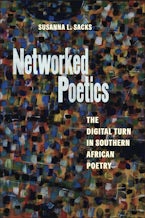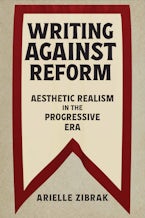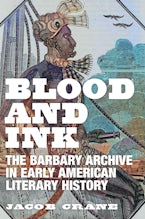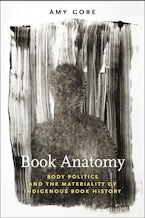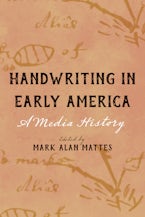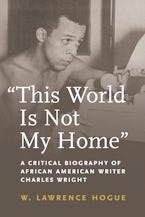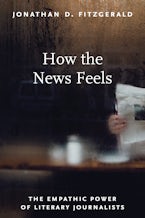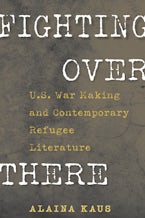- Home
- Censorship in Vietnam
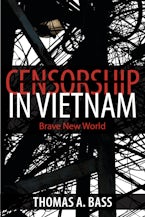
Censorship in Vietnam
Brave New World
Published by: University of Massachusetts Press
248 Pages, 6.00 x 9.00 x 0.70 in, 16 b&w illus.
Other Retailers:
What does censorship do to a culture? How do censors justify their work? What are the mechanisms by which censorship—and self-censorship—alter people's sense of time and memory, truth and reality? Thomas Bass faced these questions when The Spy Who Loved Us, his account of the famous Time magazine journalist and double agent Pham Xuan An, was published in a Vietnamese edition. When the book finally appeared in 2014, after five years of negotiations with Vietnamese censors, more than four hundred passages had been altered or cut from the text.
After the book was published, Bass flew to Vietnam to meet his censors, at least the half dozen who would speak with him. In Censorship in Vietnam, he describes these meetings and examines how censorship works, both in Vietnam and elsewhere in the world. An exemplary piece of investigative reporting, Censorship in Vietnam opens a window into the country today and shows us the precarious nature of intellectual freedom in a world governed by suppression.
After the book was published, Bass flew to Vietnam to meet his censors, at least the half dozen who would speak with him. In Censorship in Vietnam, he describes these meetings and examines how censorship works, both in Vietnam and elsewhere in the world. An exemplary piece of investigative reporting, Censorship in Vietnam opens a window into the country today and shows us the precarious nature of intellectual freedom in a world governed by suppression.
Thomas A. Bass is professor of English and journalism at the University at Albany.
"This is an eye-opening, disturbing, sad, and altogether fascinating account of censorship in contemporary Vietnam. Even more than that, Thomas Bass introduces us to a number of brave Vietnamese poets and fiction writers who have endured almost unimaginable hardships merely for expressing the humane values that most Americans take for granted."—Tim O'Brien, author of The Things They Carried
"A deep and complex account that will further current conversations about censorship both inside and outside of contemporary Vietnam."—Dan Duffy, founder of the Viet Nam Literature Project
"An engrossing, beautifully written account of censor- ship and corruption in contemporary Vietnamese journalism and literature. Bass is a masterful writer who creates an evocative montage from his personal reflections and in-depth interviews of Vietnam's greatest writers, from poets to short story writers to journalists to editors. This is a significant book and I did not want to put it down."—Wynn W. Gadkar-Wilcox, author of Allegories of the Vietnamese Past: Unification and the Production of a Modern Historical Identity
"Thomas Bass's account of his struggles with censorship in Vietnam is the most detailed I have encountered. It helps explain why history as a discipline is in such a sorry state in Vietnam. The past is a minefield, like the landscape."—Hue-Tam Ho Tai, author of The Country of Memory: Remaking the Past in Late Socialist Vietnam
"A masterpiece about Vietnamese sensitivities . . . It has produced a culture shock between Vietnamese and American customs."—Pham Thi Hoai, author of The Crystal Messenger
"When Hanoi won its war with the United States, the Vietnamese got the independence they fought for. But freedom, as in many countries around the world, is still a casualty. With gripping personal accounts, Thomas Bass describes the wounds and skirmishes of victims in this continuing battle."—Drew Pearson, producer for the PBS series Vietnam: A Television History
"Thomas Bass suffered the death of a thousand cuts while trying to get his book about a Vietnamese spy published in Vietnam, a book about my old friend and colleague at Time Magazine in Saigon, Pham Xuan An. In his latest book he explores the self-defeating censorship that ties so many of Vietnam's best artists, poets and authors up in knots, revealing the basic insecurities of authoritarian societies—a cautionary tale for our time."—H.D.S. Greenway, author of Foreign Correspondent: A Memoir
"Censorship in Vietnam is rich, poignant, and comes complete with perspectives from both sides of the fight, the censors and the censored . . . Most interesting, still, are Bass's conversations with the Vietnamese editors, censors, and publishers, the very hands that carry out acts of censorship. What they reveal, crucially, is how censorship takes place."—Journalism and Mass Communication Quarterly
"Bass's deadpan account of his (largely failed) struggles with members of the publishing-house staff who censor his book captures something of the Kafkaesque environment in which all Vietnamese intellectual discourse inside the country is policed . . . Censorship in Vietnam provides a fascinating glipse into a critically important but poorly understood dimension of contemporary Vietnamese life."—Mekong Review
"Censorship in Vietnam: Brave New World brings forth a compelling fight between censorship and the freedom of the press that many modern countries take for granted."—Communication Booknotes Quarterly

